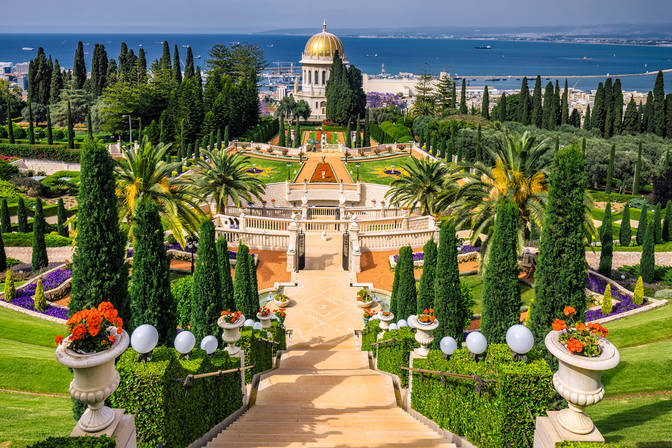Tag der Baba-Erklärung
23. Mai, Samstag

Historischer Hintergrund
Der Tag der Erklärung des Báb bezieht sich auf ein Ereignis in der Nacht des 22. Mai 1844 in Schiras, Persien (dem heutigen Iran). In dieser Nacht erklärte ein junger Mann namens Siyyid ‘Alí-Muhammad, dass er der „Báb“ sei, was „das Tor“ bedeutet. Er verkündete, dass er ein Gesandter Gottes sei, gesandt, um den Weg für eine noch größere göttliche Gestalt – Bahá’u’lláh – zu bereiten. Diese Erklärung markierte den Beginn einer religiösen Bewegung, die sich später zum Bahá'í-Glauben entwickelte.
Geistige Bedeutung
Dieser Tag hat für Bahá'ís eine tiefgehende spirituelle Bedeutung. Er wird als der Beginn eines neuen Zeitalters in der spirituellen Geschichte der Menschheit angesehen. Der Báb gilt als Wegbereiter der Offenbarung Bahá’u’lláhs, und seine Erklärung symbolisiert die Morgendämmerung einer neuen Ära in der Entwicklung von Religion und Zivilisation.
Feierformen
Der Tag der Erklärung des Báb wird typischerweise durch verschiedene spirituelle und gemeinschaftliche Aktivitäten begangen, darunter:
- Das Rezitieren spezieller Gebete und heiliger Schriften des Báb und Bahá’u’lláhs
- Gemeinschaftstreffen in Bahá'í-Andachtshäusern oder Versammlungsorten
- Persönliche Besinnung über die Bedeutung dieses Tages
- Künstlerische und kulturelle Aktivitäten, die die Werte des Bahá'í-Glaubens zum Ausdruck bringen
- Arbeits- und Schulverzicht, da es sich um einen heiligen Tag im Bahá'í-Kalender handelt
Datum der Feier
Der Tag der Erklärung des Báb wird am 8. Tag des Monats Azamat im Bahá'í-Kalender gefeiert, was gewöhnlich auf den 22. oder 23. Mai im gregorianischen Kalender fällt – abhängig vom Sonnenuntergang und dem geografischen Standort.
Tag der Baba-Erklärung in anderen Jahren
Tag der Baba-Erklärung in anderen Ländern
Mehr anzeigen
